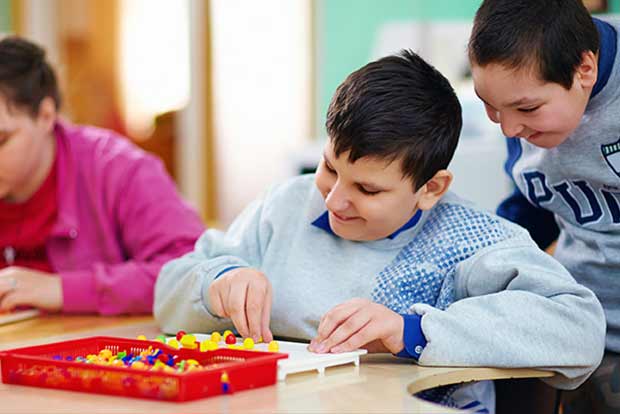Begin typing your search...
How to help autistic children socialise
Autistic children (and adults) find it difficult to interact with others, yet most want to connect and make friends. Teaching them how to socialise well will help them in their day-to-day life.

Chennai
Help them find fun ways to spend time with kids their age
This can be in the form of signing them up for clubs, finding sports teams, or helping them find groups associated with a favourite activity. However, don’t force these activities upon your child, because they will resent you for it. Consider the child’s special interest when choosing activities. Interaction may be easier when it centres on one of the child’s passions. Find autistic children, teens, or adults whom your child can meet and befriend. Meeting other autistic people will help build your child’s self-esteem and show them that they aren’t alone. Keep the situation as enjoyable as possible.
Teach them social skills
There’s no point throwing a child into a social situation when they aren’t sure how to relate to others. Autistic people find socialising especially difficult, so they will need more support in this area than most children their age. Clearly explain social skills so that your child is not confused. For example, “It’s polite to look at people when you’re talking to you. If eye contact feels uncomfortable to you, you can try looking at somebody’s eyebrows, mouth, hands, or general direction instead.” Many children’s books will teach lessons and constructive ways to respond to social situations. This allows children to learn in a fun, safe manner. Older children and teens might like self-help books about social interaction.
Be a good role model
Children learn by imitation, and your child will watch your actions to determine what is appropriate. Treat others with respect, ask questions, listen well, and take time to cool off if you feel angry or upset. Your child will watch you and begin doing the same.
Offer emotional support
Respect your child’s communication—verbal or nonverbal—and make time every day to talk and play together. When your child feels upset, ask them what’s wrong instead of immediately punishing them, and offer to help them fix the problem and prevent it from happening again. This will help your child feel supported, and trust you enough to tell you if there are problems with friends.
Be on the lookout for bullying
Most autistic children experience bullying in some form or another at some point because of their differences. They could be bullied by their classmates. Have regular conversations with your child, their teachers, and even the school principal to make sure that everything is okay for your child at school.
Offer interaction opportunities, but don’t push
Your child won’t like socialising unless she feels that she is doing it by choice. If your child feels overwhelmed or wants quiet time, let them have quiet time. Trust that they will learn the skills to create friendships at their own pace.
Visit news.dtnext.in to explore our interactive epaper!
Download the DT Next app for more exciting features!
Click here for iOS
Click here for Android
Next Story



